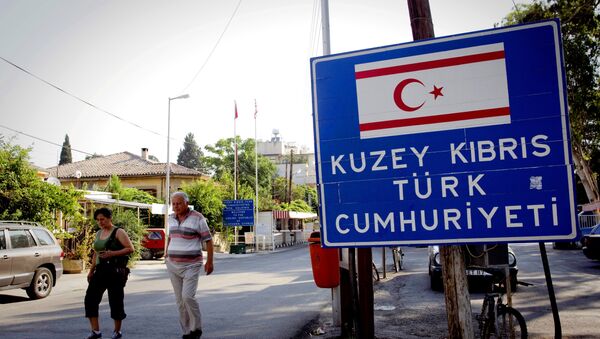Speculation over a long-awaited unification of Cyprus was this week pushed further forward by European President Martin Schulz. While fronting a press conference with Yiannakis Omirou, president of the Greek Cypriot House of Representatives, Schulz said that despite ongoing grievances between both sides, he was optimistic for the future of negotiations between Greek Cypriot and Turkish Cypriot groups.
"We are looking with optimism at #Cyprus negotiations and we hope this is justified" @EP_President mtg @yiannomirou pic.twitter.com/KSqOahd5eg
— EPIO in Cyprus (@EP_CYPRUS) January 26, 2016
"We are looking with quite big optimism to the ongoing negotiations on the island between the two sides," Schulz said.
"We believe in the unification of Cyprus in the times in which we are living and the problems we are facing are a signal of hope not only for the country but the European union as a whole."
Unification Talk: 'Not From What I See and Hear'
While there has been optimism at European level, others in Cyprus are far less convinced that a solution can be found that will appease both Greek and Turkish Cypriots.
What potential #peace & reunification could mean to #Cyprus & its #energy sector: https://t.co/2oA854ON6B #EUatDavos pic.twitter.com/zotuOK75wE
— Maroš Šefčovič (@MarosSefcovic) January 21, 2016
Andreas Theophanous, Professor of Political Economy at the Center for European and International Affairs of Nicosia, told Sputnik that despite the goodwill on both sides, he was "very skeptical" about the reality of a unification deal.
"I would like to see a solution take place and I think people would be supportive of a solution if it improved the status quo, but from what I see and what I hear, I don’t think that’s the case."
Among Mr Theophanous’ major concerns is the type of package offered as part of unification, arguing that previous Western-brokered methods that allow countries to operate along ethno-political lines, as seen in Bosnia, are not sustainable.
He has called for an "integrationalist model" that would see the creation of a coalition government which would encourage politicians on both sides to come up with common objectives.
Briefed the UN Security Council on Cyprus. All 15 SC members expressed unanimous support 4 the reunification effort. pic.twitter.com/eR8og5C3sw
— Espen Barth Eide (@EspenBarthEide) January 16, 2016
Fair Unification 'Not Feasible'
Another skeptic of the chances of Cypriot unification in the near future is a Cyriot journalist Eftyhia Andreou. She told Sputnik that despite an increase in support for unification and better relations at a grassroots level, it would be difficult to eventually agree to a final solution at a politically.
"I would go a step further and say that that is not even tangible, that is not even feasible. You can’t keep both communities happy in the same way. Speaking frankly, Greek Cypriots are happy with the way things are right now – they have their homes, they have their jobs, the economy is picking up, although maybe not the way it was. For the Turkish Cypriots, the stakes are much higher, so they want a solution even more. I think they [Turkish Cypriots] are willing to give more to get a solution than the Greek Cypriots, although the rhetoric between the two communities is exactly the opposite."
Andreou says that despite openness towards the idea of unification, many Greek Cypriots would be unwilling to make serious concessions to their Turkish Cypriot counterparts when pressed on the matter.
Alternatively she believes that while many Turkish communities set up strict guidelines for talks and solutions, many would be more willing to compromise in talks.
We will continue our hard work to put an end to the 53-yr old problem & pave the way for new economic opportunities. pic.twitter.com/RAvG7coja5
— Mustafa Akinci (@MustafaAkinci_1) January 21, 2016
Leaders Pushing for 2016 Deadline
The international community has been encouraged by the thawing of relations between the internationally-recognized Greek-Cypriot government in the island’s south, and the Turkish-Cypriot government in the north.
Turkish Cypriot leader Mustafa Akinci along with Greek-Cypriot leader Nicos Anastasiades have both pushed for unification, with Akinci stressing the importance of securing a solution within the near future.
"With the passage of time collective memory is getting lost, and unfortunately younger generations are becoming more alienated from each other," he said when commenting on talks last year.
He warned that if Cyprus was not unified soon, then future generations would opt for "a different kind of solution that will be more along the lines of division".
Peace and prosperity shall prevail and the future generations will not have to face the same strife and uncertainties of the past.
— Mustafa Akinci (@MustafaAkinci_1) January 21, 2016
Despite the optimism, Andreou warned that rushing into plans for unification could cause more harm than good, and may be detrimental to the overall cause.
"The leaders have a personal bet between themselves that they’re trying to solve this within 2016, so they’re going to try and get a plan out there… But I don’t know if that will get in the way of a plan that people would be actually willing to say yes to, and that is dangerous, because people are ready to work towards a solution and say yes, but if they have a plan in front of us that people cannot accept, that will open up a whole new chapter of complications."
Andreou says that due to political efforts to find a common solution, there will at least be a referendum within the next couple of years, however the outcome of that will depend on the finer details.
"How that [the referendum] is going to go depends on what is in the plan, because in 2004 a lot of people wanted a solution, but what was put in front of us was unacceptable. So I don’t know if that is going to happen again and if history is going to repeat itself. In any case, I don’t think a plan will be put forward before 2016, but definitely before the next presidential election."



